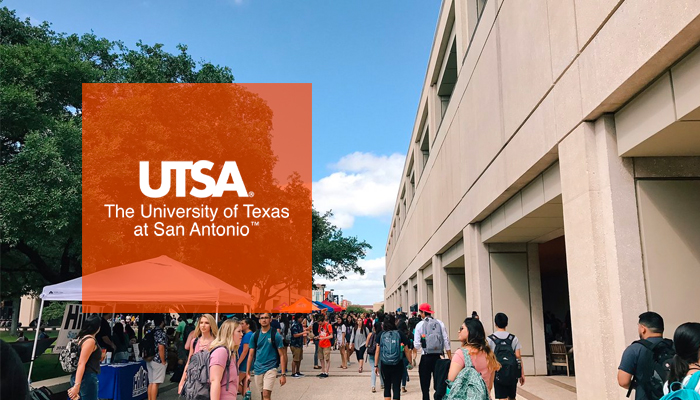
How UTSA Avoided Pandemic-Driven Enrollment Decline With Data-Activated Retention Strategies
Share this Post
The University of Texas at San Antonio (UTSA) was expressly founded to advance the education of their community. In their work to help student thrive, UTSA’s leadership wanted to reinvest in their already successful centralized academic advising services. Student success leaders knew that to maximize the effectiveness of academic advising, they needed a data analytics platform to help them identify which students needed support when they needed it and what policies, practices, and programs would have the most impact.
National Student Data Trends Fell Short
Their previous data analytics solution derived its predictions primarily from national and international trends. It didn’t accurately reflect the risk factors or opportunities for impactful intervention for their particular student populations. To compensate for this information gap, the UTSA advising team manually collected and analyzed student data to provide to the administration. This practice slowed down access to important student data and unnecessarily increased tedious administrative work for advisors who needed to use this time to serve students.
The result? A frustrated and tired student support team lacked the resources needed to scale student support in the way they desired effectively. Leaders at UTSA knew something needed to change. They made the switch to the Civitas Learning Student Impact Platform. They wanted an experienced partner and data analytics platform that allowed them to influence the data points used to inform risk and success indicators for their students.
Institution-Specific Insights Lead to Transformative Action
As UTSA began implementing the Student Impact Platform, the COVID-19 pandemic suddenly forced them to move all their operations online. To maintain a seamless student experience, the UTSA team moved 100% of their new student orientation advising sessions to online one-to-one appointments using the Student Impact Platform’s advising analytics and workflow capabilities. Additionally, the Associate Vice Provost of Student Success used the platform’s administrative analytics capabilities to ensure advisors met with all new students.
Access to real-time data and a unified student success platform enabled leaders to shift their advising team’s caseload management operating procedures away from time-consuming, cumbersome manual tasks. With the Student Impact Platform, administrators could alleviate advisors of manually determining which students weren’t registered by quickly generating reports to reveal that information. Leaders also supported advisors by using the platform’s communication capabilities to send messages to students to encourage them to connect with their advisors.

“Our Civitas Learning Student Impact Platform quickly gave us a unique snapshot of our students. It also provided us with the strength and data to chase other dollars which has increased funding toward student success.”
—
Angelica M. Barrera, M.S.
Associate Vice Provost of Student Success
University of Texas at San Antonio
Once the semester began, academic advisors limited the negative impacts on persistence caused by the pandemic by using the platform to monitor and connect with their students consistently. Each academic advising unit was able to hone in on the indicators for their particular student groups that signaled potential risks or opportunities for impact.
For example, the advising team supporting teacher certification students focused engagement efforts on those students who were very close to not being eligible to apply for the teacher certification program. At the same time, those advisors working with engineering students focused on providing resources to succeed in a required gateway course because they knew that students who passed the course with a C or higher were more likely to succeed in the major. Seeing students through a dynamic platform unlocked insights that were impossible to access when reviewing student data derived from generic, aggregate risk factors. Access to institution-specific and student-group-specific data empowered the advising team to tailor their engagement efforts to match the needs of their students.
Leaders further focused the efforts of the advising team on the most vulnerable students by using the Student Impact Platform’s administrative analytics capabilities to identify student populations specific to UTSA that would benefit most from additional support. The data revealed three student groups: readmitted students, holistic review admissions (UTSA’s test-optional admissions program), and historically underrepresented male students. The ability to derive insights from disaggregated student data allowed the UTSA team to implement data-activated retention strategies to scale positive student outcomes by prioritizing their engagement with the UTSA students with the highest likelihood to benefit.
The Civitas Learning Student Impact Platform also uncovered an opportunity to support students with a 2.0-2.5 GPA risk by connecting them with academic coaching services. Previously academic coaching services were primarily utilized by self-selecting graduate and honors students. UTSA began proactively encouraging academically at-risk students to use academic coaching. Using the Student Impact Platform’s initiative analysis capabilities, leaders could compare the impact of serving high-achieving students versus students at higher risk. The data revealed that new efforts to engage higher-risk students were paying off. This new approach yielded a 1.6 percentage point increase in persistence for higher-risk students in its first months.
Academic Advising Results in a 4.4 Percentage Point Lift in Persistence
With the Civitas Learning Student Impact Platform, UTSA avoided the 4% pandemic-driven enrollment decline experienced by most of its peer institutions during the fall of 2020. The Civitas Learning Student Impact Platform enabled UTSA’s advising team to provide holistic support for their students when they needed it most. The institution invested in tools to alleviate advising workflow challenges and data disconnects. Students who engaged with academic advising services experienced a 4.4 percentage point lift in persistence. Additionally, proactive efforts to encourage vulnerable students to use academic coaching services resulted in at least a 1.6 percentage point lift in persistence. Despite caseloads of 450-500 students per advisor, access to institution-specific data analytics they could trust enabled UTSA to implement a combination of data-activated student success strategies to help even more students succeed.
Access to the Civitas Learning Student Impact Platform provided the institution with the real-time visibility and insight they needed to provide precise interventions to students when needed. Access to a data analytics platform configured to UTSA’s needs provided the team with persistence predictions and a combination of actionable insights they could trust. Access to a unified student success platform enabled leadership to ease workflows and alleviate the administrative burden so advisors could spend their time transforming the lives of their students.


